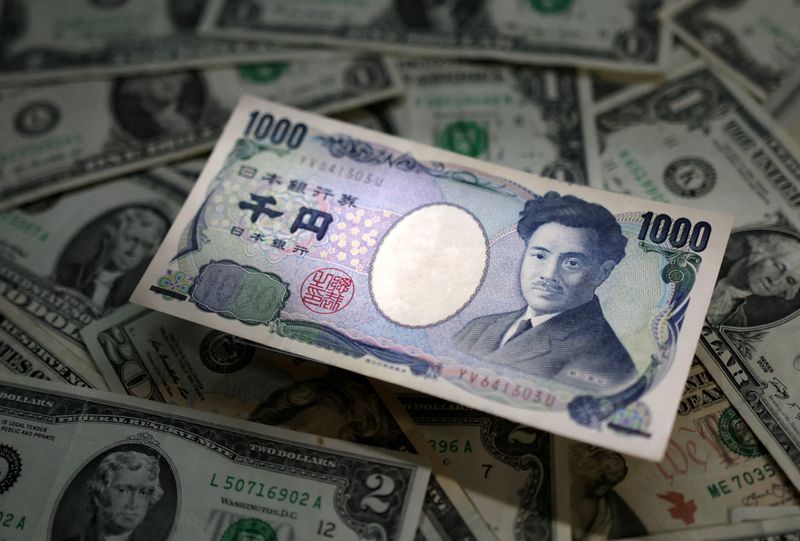By Leika Kihara
TOKYO (Reuters) - Japan will forgo intervening in the market unless the yen plunges past 150 to the dollar and becomes a huge political headache for premier Fumio Kishida, said a former central bank official who was involved in Tokyo's market foray a decade ago.
The dollar stood at 146.125 yen on Tuesday, staying near a nine-month high of 146.565 hit last Thursday.
When the dollar broke above the 145-yen line that triggered intervention last year, speculation began mounting that Tokyo would soon step into the market to support its currency.
"Authorities usually don't have a specific line-in-the-sand in mind. But key thresholds like 150 are important for political reasons, as they are easy to understand," said Atsushi Takeuchi, who was head of the BOJ's foreign exchange division when Tokyo intervened back in 2010-2012.
The public's mood is key to when authorities intervene due to the strong attention Japanese firms and households place on yen moves, said Takeuchi.
But anxiety over the weak yen appears less than a year ago as households are becoming accustomed to rising prices, he said.
The benefits of a weak yen are also becoming clearer due to Japan's re-opening of borders, which is reviving inbound tourism and domestic service-sector firms, he added.
"When to intervene has always been an extremely political decision in Japan. Nowadays, it's the prime minister that ultimately makes the call," Takeuchi told Reuters on Tuesday.
"Public discontent over the weak yen isn't escalating to a scale seen last year," he said. "I don't think Kishida is under huge pressure to respond."
But authorities could intervene if the yen speeds up its pace of declines and breaches 150 to the dollar, he said.
Before stepping in, authorities will likely offer verbal warnings and conduct rate checks to buy time in hope markets will correct themselves, Takeuchi said.
"Even if intervention isn't imminent, as policymakers you don't want to appear as if you're indifferent to market moves."
Last year's sharp yen falls boosted import costs for fuel and food, hitting households yet to see wages rise much. That prompted Tokyo to conduct a rare operation to prop up the yen.

Japan historically focused on preventing sharp yen rises that hurt its export-reliant economy. Takeuchi took part in several yen-selling intervention from 2010 to 2012. He is now chief research fellow at Ricoh Institute of Sustainability and Business.
Under Japanese law, the government holds jurisdiction over currency policy. The BOJ serves as an agent of the Ministry of Finance, which decides when to intervene.